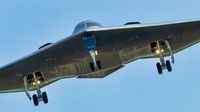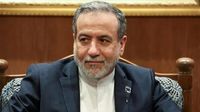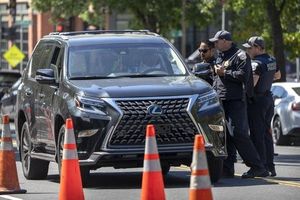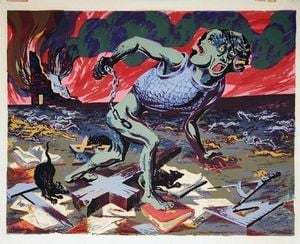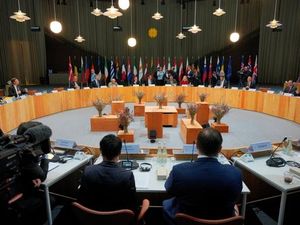France, Germany, and Britain have issued their starkest warning yet to Iran, setting the stage for a diplomatic showdown at the United Nations. The so-called E3 group of European powers has told the UN in a formal letter that they are prepared to trigger the reimposition of sweeping sanctions on Tehran if it does not return to nuclear negotiations by the end of August 2025. The move comes after months of escalating tensions and follows face-to-face discussions in Istanbul in July, the first such talks since Israeli and American strikes targeted Iranian nuclear sites in June.
The letter, which was sent to UN Secretary-General António Guterres and the Security Council earlier this week, leaves little room for ambiguity. “We have made it clear that if Iran is not willing to reach a diplomatic solution before the end of August 2025, or does not seize the opportunity of an extension, E3 are prepared to trigger the snapback mechanism,” the ministers wrote, according to Financial Times and corroborated by Reuters and other outlets.
This “snapback” mechanism—part of the 2015 Joint Comprehensive Plan of Action (JCPOA)—allows any of the deal’s signatories to unilaterally restore all United Nations sanctions on Iran if the country is found to be in non-compliance. Crucially, the process bypasses the Security Council veto, meaning neither Russia nor China could block the move. If triggered, the snapback would reimpose a comprehensive arms embargo, severe financial restrictions, and other punitive measures that had been lifted under the JCPOA, isolating Iran from global markets and striking a major blow to its oil exports and foreign investment prospects.
According to National Security Journal, this latest warning reflects mounting European frustration with what they see as Iran’s defiance and determination to rebuild its nuclear program. Iranian officials have repeatedly described their nuclear ambitions as a matter of “national pride,” and have demanded the removal of all remaining Western sanctions before any further discussions can move forward. The E3’s letter, however, sets a firm deadline: unless Iran returns to the table or agrees to an extension before August 31, the snapback process will begin.
The looming threat of sanctions comes at a particularly fraught moment for the region. The deadlock follows a 12-day war between Israel and Iran in June 2025, which ended only after coordinated Israeli and American strikes on Iranian nuclear facilities. The aftermath left diplomatic channels in disarray and prompted urgent efforts by European powers to revive talks and prevent further escalation.
Iran’s response has been swift and unequivocal. Foreign Minister Abbas Araghchi told Iranian state television, as reported by AFP, “We will try to prevent it. We are working with China and Russia to stop it. If this does not work and they apply it, we have tools to respond. We will discuss them in due course.” The statement underscores Tehran’s reliance on its partnerships with Moscow and Beijing, both of whom remain signatories to the 2015 deal and have consistently opposed renewed sanctions on Iran.
But the E3’s position is clear. As outlined in United Nations Security Council Resolution 2231, which endorsed the JCPOA, any signatory can initiate the snapback mechanism if Iran is found to be in breach. Once triggered, there is a 30-day window before sanctions are automatically reimposed, during which time the Security Council may review the case—but cannot veto the outcome. For Iran, the consequences would be severe: renewed isolation from the global financial system, a sharp reduction in oil revenue, and significant obstacles to foreign investment.
Iranian lawmakers are not taking the threat lightly. Manouchehr Mottaki, a prominent parliamentarian and former foreign minister, told the semi-official Defa Press that “Iran’s parliament has its finger on the trigger to withdraw from the nuclear Non-Proliferation Treaty (NPT)” if the snapback is invoked. He added that parliament would approve a bill to withdraw from the 2015 nuclear deal within 24 hours if the E3 moves ahead with sanctions. This sentiment was echoed by Deputy Foreign Minister Kazem Gharibabadi, who warned last month that Iran would leave the NPT if UN sanctions are ‘snapped back.’
The NPT, ratified by Iran in 1970, is a cornerstone of global nuclear nonproliferation efforts. It guarantees countries the right to pursue civilian nuclear power, provided they forgo atomic weapons and cooperate with the International Atomic Energy Agency (IAEA). A withdrawal by Iran would mark an unprecedented escalation, raising the specter of a nuclear arms race in the Middle East and further destabilizing an already volatile region.
European officials, for their part, appear determined to hold the line. The JCPOA, which was painstakingly negotiated in 2015 and is set to expire in October 2025, was originally designed to limit Iran’s uranium enrichment in exchange for sanctions relief. The United States, under President Donald Trump, withdrew from the deal in 2018, reimposing its own sanctions and triggering a gradual unraveling of the agreement. Since then, Iran has steadily expanded its nuclear activities, prompting repeated warnings from the UN and Western powers.
In July, U.S. Secretary of State Marco Rubio joined European leaders in setting a firm deadline for Tehran to make progress on a new deal. Should Iran fail to engage in good-faith negotiations or demonstrate willingness to comply with international demands, the snapback mechanism would be set in motion. According to National Security Journal, the E3’s readiness to act unilaterally reflects a growing sense that time is running out for a diplomatic solution.
Iran’s Foreign Ministry, meanwhile, has expressed hope that the E3 will reassess what it called their “previous unconstructive attitude.” But with the August deadline fast approaching, few observers expect a breakthrough without significant concessions on both sides. The stakes could hardly be higher: renewed sanctions would deepen Iran’s economic woes and further isolate it on the world stage, while a collapse of the NPT framework could ignite a dangerous new phase in the region’s nuclear standoff.
As the clock ticks down to the end of August, all eyes are on Tehran and the European capitals. Will Iran return to the negotiating table, or will the E3 make good on their threat to trigger the snapback? For now, the world waits, bracing for the next move in this high-stakes diplomatic chess match.
